Austrian Beverages: Basic Overview
Common Ingredients
Common Preparing Methods
Drinking Etiquette
Influence and Fusion
Austrian Beverages: Origin and Region
Cuisine
Culinary Region
Country’s Region
Classifications of Austrian Beverages
-
Non-alcoholic Beverages
Known for their refreshing and natural flavors.
Often include herbal, fruit-based drinks, and a variety of traditional coffee preparations.
-
Alcoholic Beverages
Include several high-quality wines, beers and distilled spirits.
Seasonal and festive drinks also play a significant role, often featuring warm, spiced beverages.
Austrian beverages are known for high-quality ingredients and meticulous craftsmanship. Common ingredients include coffee beans, fruits, herbs, and high-quality spirits, these beverages can be sweet, tart, robust, or aromatic.
The diversity of Austrian drinks can cater to all tastes and seasons, from refreshing summer drinks to warming winter concoctions. So here, you’ll find 14 best well-known choices in the Austrian drink menu.
Besides, you can also learn about the drinking culture in Austria, emphasizing the importance of social conviviality and tradition, which is similar to other European drink cultures. Finally, there are some insights on how to pair these beverages with various Austrian dishes or foods.
14 Most Famous Austrian Beverages with Filters
Here are 14 greatest and famous beverages in Austria, both alcoholic and non-alcoholic. As you explore, use the filter function to quickly find your favorites.
Austrian Beer
- Alcoholic
- Traditional
Beer is a staple in Austrian culture. The brewing tradition dates back centuries, with a wide variety of beers reflecting the passion and craftsmanship of Austrian brewers.
Major brands like Gösser, known for its clean, crisp taste, and Stiegl, particularly famous for its Stiegl Goldbräu lager, are widely popular. Wieselburger, Ottakringer, Egger Bier, and Zillertal Bieris are also great choices of beer.
The most famous Austrian beers are often lagers, famous for their clarity and balance. This dedication to quality makes these beers a perfect companion to many dishes, from hearty Alpine cuisine to light snacks.
Austrian Wine
- Alcoholic
- Traditional
Austrian wine has an exceptional quality thanks to the country’s climate and soil conditions. Among the most renowned is Grüner Veltliner, a white wine known for its crisp acidity and peppery notes.
Riesling, another esteemed white wine, offers a balance of sweetness and acidity, often with fruity and floral undertones. These wines reflect the expertise and tradition of Austrian winemaking.
Red wines in Austria are equally notable. Blaufränkisch, a popular red variety, is praised for its rich, spicy flavors and vibrant acidity, ideal for pairing with hearty dishes. Zweigelt, Austria’s most widely planted red grape, produces wines that are fruity, with a smooth finish.
Almdudler
- Non-Alcoholic
- National
Almdudler is a beloved Austrian soft drink with a herbal flavor, setting it apart from other sodas. Created in 1957, Almdudler has often been hailed as the national drink of Austria.
The brand’s commitment to using natural ingredients and maintaining traditional recipes has earned it a loyal following.
Often enjoyed on its own or as a mixer with wine and beer, Almdudler is a versatile beverage that you can find in local family gatherings, restaurants, or festive occasions.
Glühwein
- Alcoholic
- Traditional
Glühwein is a traditional Austrian mulled wine made by heating red wine with spices namely cinnamon, cloves, star anise, and citrus fruits. Therefore, Glühwein has an aromatic taste.
This mulled wine is especially popular during the winter months and holiday season, so you can commonly find it in Christmas markets across Austria. Austrian Glühwein is often crafted using high-quality local wines, ensuring a superior taste.
Glühwein has a long history that dates back to ancient Rome. The Romans would heat wine and add spices to preserve it and enhance its flavor. This tradition spread across Europe, and by the Middle Ages, it became popular in the German-speaking regions, including Austria.
Kapuziner Coffee
- Non-Alcoholic
- Traditional
Kapuziner coffee is a famous Austrian coffee drink originating from Vienna, dating back to the 18th century. The name “Kapuziner” is inspired by the brown robes of Capuchin monks, which resemble the color of the coffee when mixed with a small amount of cream.
Overall, kapuziner coffee has a rich espresso base topped with a small amount of whipped cream, resulting in a craemmy beverage. High-quality espresso is essential, often made from locally roasted beans, and the whipped cream must be fresh and lightly sweetened.
In Austria, Kapuziner coffee is enjoyed in coffeehouses, such as Café Central and Café Sacher, serving as gathering spots for intellectuals, artists, and everyday people.
Maria Theresia Coffee
- Alcoholic
- Traditional
Maria Theresia coffee is a Viennese coffee cocktail made with orange liqueur, typically Cointreau or Grand Marnierand, and topped with whipped cream. Thus, this coffee is a delightful blend of bold coffee and the subtle sweetness and citrus notes of the liqueur.
Maria Theresia coffee is named after the Empress Maria Theresa. In Vienna, Maria Theresia Coffee is often enjoyed in elegant coffeehouses, for example, Café Landtmann and Café Schwarzenberg.
Spritzer
- Alcoholic
- Traditional
Spritzer, known as “G’spritzter” in Austria, is a popular beverage made by mixing crispy white wine with fizzy sparkling water. The drink is typically made with local wines, such as Grüner Veltliner.
The preparation of a spritzer is straightforward, yet it requires a good balance to ensure the right mix of wine and water. The result is a light beverage perfect for casual gatherings and outdoor events, especially during the warm summer months.
In Austria, spritzer is often enjoyed in wine taverns, known as Heurigen, where it is served alongside traditional dishes.
Red Bull
- Non-Alcoholic
- National
Red Bull is a well-known energy drink originating from Austria. It was introduced in 1987 by Dietrich Mateschitz and inspired by a Thai beverage called Krating Daeng, which Mateschitz adapted for the Western market.
Red Bull’s formula includes caffeine, taurine, B-vitamins, and sugars, designed to improve energy and mental performance. Its launch marked the beginning of the global energy drink market.
In Austria, the brand sponsors numerous sports events and teams, showcasing its association with active and adventurous living.
Eiswein
- Alcoholic
- Traditional
Eiswein, or ice wine, is a rare type of dessert wine produced in Austria. This unique wine is made from grapes that have naturally frozen on the vine, typically harvested in the early hours of a cold winter morning.
The frozen grapes are pressed while still frozen, resulting in a highly concentrated and sweet juice. This meticulous process yields a wine with an intense flavor and a perfect balance of sweetness and acidity.
You can buy high-quality Eiswein, particularly from regions such as Niederösterreich and Burgenland. The country’s cold winters provide ideal conditions for producing this exceptional wine.
Jagertee
- Alcoholic
- Traditional
Jagertee is a traditional Austrian beverage combining strong black tea, Inländer-Rum (a spiced Austrian rum), honey, and spices, like cinnamon and cloves. Sometimes, fruit juices or schnapps are added for extra flavor.
Jagertee is a warm, spiced drink that is perfect for sipping by the fire on Christmas or enjoying after a day of skiing in the Austrian Alps. Originating in the Alpine regions, Jagertee has a long history as a favorite among hunters, which is reflected in its name, meaning “hunter’s tea.”
This drink not only warms the body but also shows the Austrian tradition of gemütlichkeit, a cultural concept that emphasizes the importance of togetherness, comfort, and good cheer.
Wiener Melange
- Non-Alcoholic
- Traditional
A Wiener Melange is a Vienna’s specialty coffee drink akin to a cappuccino but made with milder coffee. It consists of half a cup of brewed coffee mixed with half a cup of steamed cream, topped with milk foam. Unlike traditional cappuccinos in the Unlike traditional cappuccinos in the iconic Italian drink list, this blend has a smoother and creamier taste.
Some brands like Nescafe, Mövenpick, and Lufthansa Catering, as well as Albert Heijn house brand, serve Wiener Melange as coffee blended with cocoa, with or without milk foam.
In Vienna, ordering a Wiener Melange might sometimes result in receiving an espresso con panna, though this drink is properly called a Franziskaner. FYI, the term “Franziskaner” parallels “cappuccino” and the Austrian “Kapuziner,” both named for the brown robes of Capuchin friars.
Skiwasser
- Non-Alcoholic
- National
Skiwasser is an Austrian non-alcoholic drink made by mixing water with fruit syrups, typically raspberry or lemon, and often a splash of fresh lemon juice. It’s a light, slightly sweet drink that provides a hydrating, making it popular among skiers and hikers in the Alpine regions.
In Austria, skiwasser is a part of the mountain culture and a symbol of the outdoor lifestyle. The drink is commonly served in mountain huts and ski lodges, providing an energizing respite after a day on the slopes or trails.
Fiaker
- Alcoholic
- Traditional
Fiaker is a Viennese cocktail blending strong black coffee with Austrian rum, topped with whipped cream and a maraschino cherry. Fiaker is named after the horse-drawn carriages, or fiakers, that were once common in Vienna.
The Fiaker coffee cocktail is enjoyed for its robust flavor and warming qualities. That’s why it’s especially popular during the colder months.
Traditionally served in a glass, this drink is often accompanied by a small glass of water and sometimes a piece of chocolate.
Schnapps
- Alcoholic
- Traditional
Schnapps is a classic Austrian spirit with a clear, strong, and often fruity flavor. Made by fermenting and distilling fruits like apricots, pears, apples, and plums, local distilleries have been perfecting the art of schnapps for centuries, using fresh, seasonal ingredients.
The most famous varieties include Marillenschnaps, Austrian apricot brandy known for its fruity flavor, smooth finish, and sweetness and aromatic qualities. This spirit is typically enjoyed as a digestif, sipped slowly to appreciate its pure and intense taste.
ext to sipping it neat, schnapps can also be enjoyed in cocktails or even flambe desserts for a touch of fiery flair. On the other hand, schnapps is a national drink in Germany.
What is The Drinking Culture in Austria?
The drinking culture in Austria is characterized by 7 key factors:
Appreciation for Quality
High value is placed on the craftsmanship and heritage of beverages. Preference for locally produced options.
Focusing on Tradition
Strong emphasis on traditional methods and recipes. Therefore, their beverages often reflect the country’s cultural history.
Social Connection
Drinking is a key part of social gatherings and communal experiences. Beverages are enjoyed with friends, family, and colleagues, in cozy coffeehouses, bustling taverns, and festive outdoor settings.
Unhurried Pace
Drinks are savored slowly to fully appreciate the flavors and the company.
Seasonal Specialties
From summery spritzer to warming Glühwein in winter, drinks in Austria often reflect the season.
Schnapps Tradition
A shot of schnapps is a common digestive to finish a meal.
Respectful Cheers
A clinking of glasses is accompanied by eye contact and a toast like “Prost” or “Zum Wohl” (both meaning “to your health”).
Next, you can expand your knowledge about pairing foods/dishes with drinks in Austria.
What To Eat to Match with Austrian Beverages?
Below are 4 suggestions of pairing beverages with traditional dishes in Austria that you should try once.

With Wine
The crisp white wines, for example, Grüner Veltliner, pair perfectly with wiener schnitzel (breaded and fried veal dish), or full-bodied red with tafelspitz.
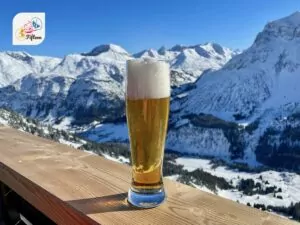
With Beer
Wiener Würstel (Vienna sausages) and lagers or ales is a nice duo. Beer can go with wiener schnitzel as well.
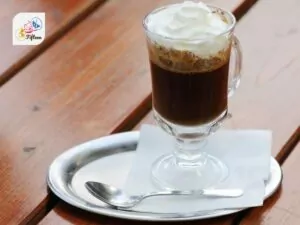
With Coffee
Apfelstrudel, an apple strudel is an ideal match for a Wiener Melange or any Viennese coffee.
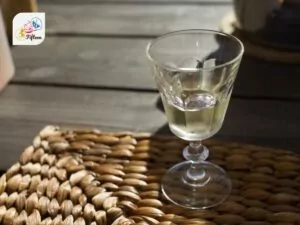
With Schnapps
Marillenknödel, apricot dumplings, is especially enjoyed with Marillenschnaps, or Kaiserschmarrn, pancake dessert with any light, fruity Schnapps.
Austrian beverages are as varied as the country’s heritage. So, have you found a favorite drink? Share your thoughts below and discover more beverages from around the world on this website!
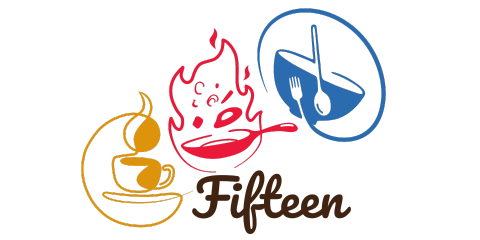








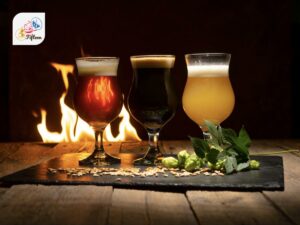
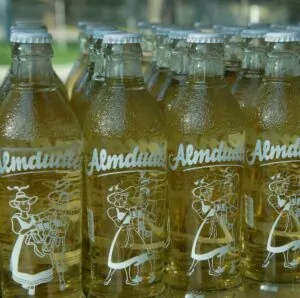
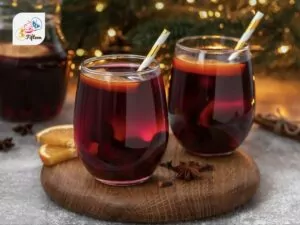
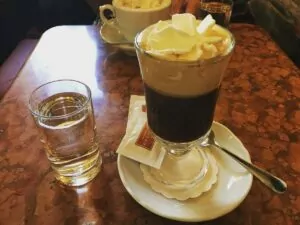

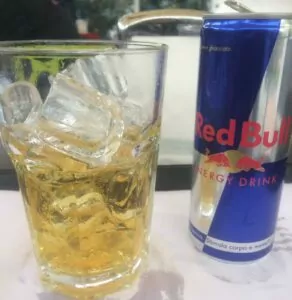
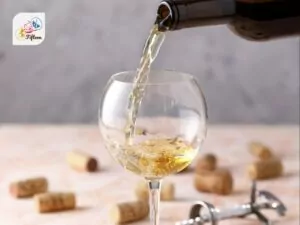
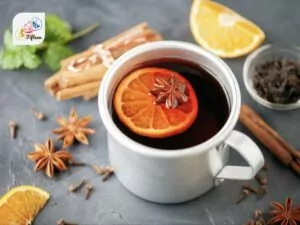

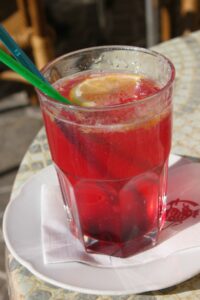
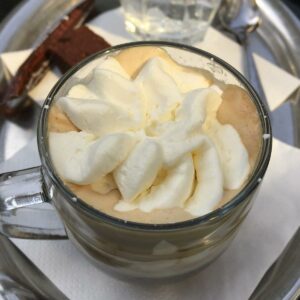
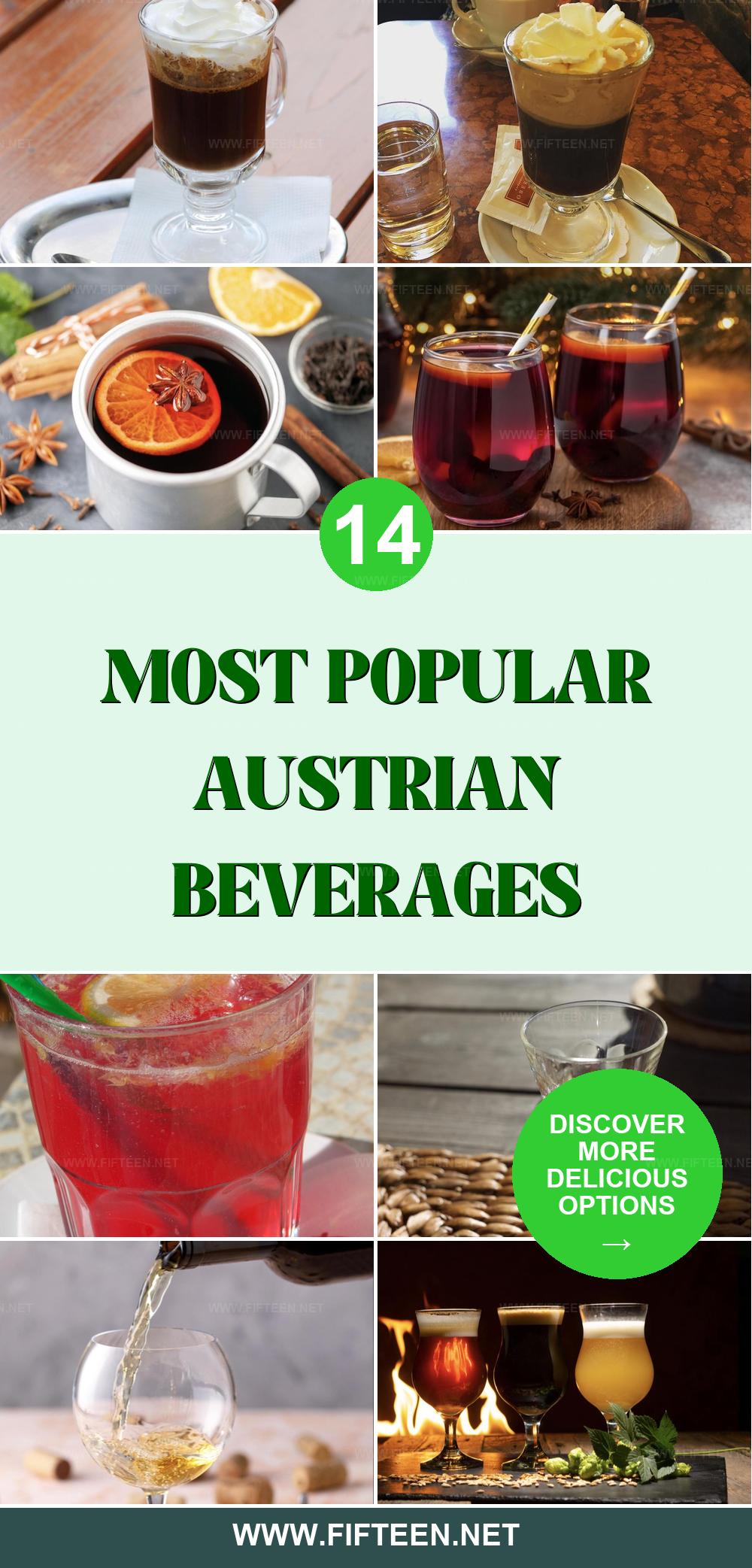
Jamie Scott
Editor in Chief, Senior Content Writer
Expertise
Home Cooking, Meal Planning, Recipe Development, Baking and Pastry, Food Editor, Cooking-video Maker, Western Food Evaluation Expert
Education
Le Cordon Bleu College of Culinary Arts
Local Community College, New York, NY
Jamie Scott is a skilled culinary expert and content creator specializing in Western cuisine. With over 15 years in the culinary field and formal training from Le Cordon Bleu, Paris, Jamie deeply understands how to blend nutrition with delicious flavors. His passion for cooking matches his commitment to making healthy eating accessible and enjoyable.
On Fifteen.net, Jamie brings a fresh perspective to classic dishes and beverages, offering readers insightful recipes, cooking tips, and a fresh view on meal planning that emphasizes taste, health, and simplicity.